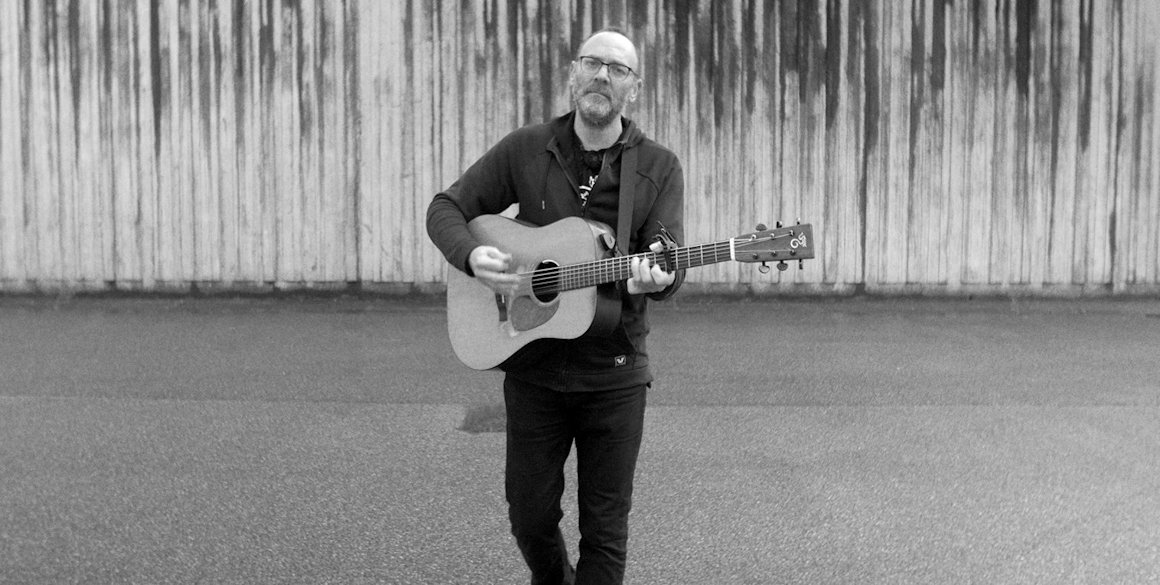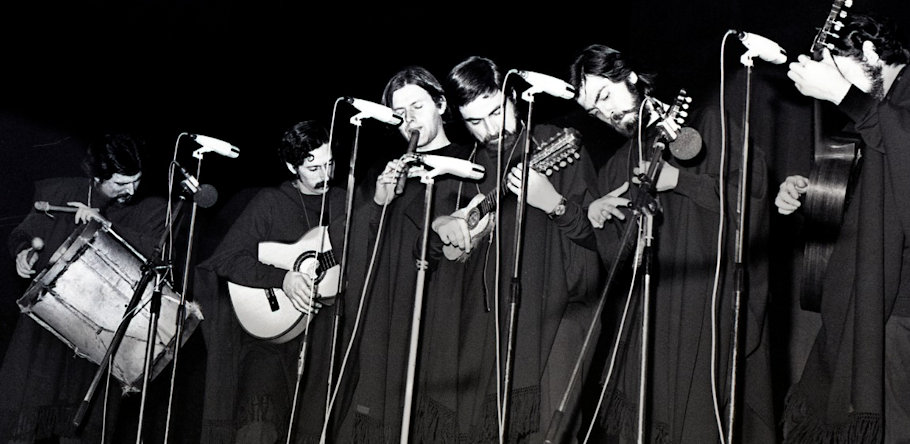Catching up with David Rovics
Music journalists love to make lists of their favourite releases at the end of the year, typically selecting their top ten from mainstream artists who have enjoyed the benefit of mass distribution and publicity. In December, radical singer-songwriter David Rovics, who self-manages his recordings and publicity, proposed his own list in his “Songwriter’s Notebook” blog. He offers us “2015 in 10 Songs”: the “top ten” news events of the year, each one accompanied by a link to a Rovics song composed in response. Terrorism of all stripes, racist and Islamophobic violence, rampaging police, right-wing xenophobes, deranged U.S. presidential candidates, and the international refugee crisis, all receive a sharply-focused response from the hard-working anti-imperialist troubadour. What’s wrong with tooting your own horn if it’s to show that you’ve risen to the occasion to pen another collection of politically astute songs in response to the challenging times in which we live? Many of these songs can be found on Rovics’ latest CD, which bears the ominous title “1939”. To order Rovics albums, subscribe to his newsletter, get tour info, and read his blog, visit www.davidrovics.com.
Musicians Unite to Save Bristol Bay
In 2010, activists in Alaska invited folk musician and grassroots organizer Si Kahn to help in their struggle to stop the Pebble Mine. The tailings from this gold and copper extraction project would endanger the fisheries of Bristol Bay, source of 50% of all wild fish caught in North America, including most of the world’s sockeye salmon. The Pebble Mine consortium wants to build the world’s largest open-pit mine next to the headwaters of the rivers where the salmon spawn. To help Alaskans resist the Pebble Mine, Si Kahn has built a unique solidarity organization, Musicians United to Protect Bristol Bay. Hundreds of musicians from Alaska, continental USA, Canada, and Europe have signed on. They publicize the campaign through their websites, social media, and gigs. Some write songs about the issue and perform at campaign-related concerts around Alaska. In December, President Obama banned oil and gas drilling in Bristol Bay, declaring it to be “one of America’s greatest natural resources.” But the struggle continues. The company is in the courts challenging recent Environmental Protection Agency decisions that favour the mine’s opponents. Here’s to Musicians United to Protect Bristol Bay. May they carry on the struggle until victory is finally achieved. For more info: www.musiciansunited.info.
Harry Somers opera “Louis Riel”
The Canadian Opera Company has announced that it will produce “Louis Riel”, the acclaimed 1967 opera by Canadian composer Harry Somers, as part of its 2016-17 season. Somers (1925-1999) is widely regarded as one of Canada’s most influential and innovative composers. He composed “Louis Riel” for Canada’s centennial in 1967, with a bilingual libretto by Mavor Moore and Jacques Languirand. “Louis Riel” is based upon the events surrounding the uprisings of the Métis and First Nations peoples in Red River in 1869-70, and in Saskatchewan in 1885. It dramatizes the political trial and execution of Métis leader Louis Riel, who fought to preserve Métis rights and culture, as the West came under the influence of the expanding Canadian state. For generations Riel was characterized as a half-crazed rebel by the Canadian ruling class. By 1967, when Somers composed his opera, attitudes were just starting to change. Today Riel is acknowledged as the founder of Manitoba and the leader of the Métis people of the Canadian prairies. Unfortunately the COC is based in Toronto; few of its productions travel. Let’s hope “Louis Riel” will be an exception.
Leon Bibb: 1922-2015
Folksinger, actor, and civil rights activist Leon Bibb died on Oct. 23 in his adopted city of Vancouver. He was 93. Bibb was born in the segregated city of Louisville, Kentucky in 1922. He moved to New York City in the 1940’s, and established himself as a singer and actor, appearing in Broadway musicals and recording albums for the progressive Folkways and Vanguard labels. By the late fifties he’d become a familiar figure in the burgeoning New York folk music scene, along with contemporaries like Harry Belafonte, Pete Seeger, and Odetta.
By 1963, he was appearing regularly on national TV shows like Hootenanny and The Ed Sullivan Show. A famous 1965 photograph shows him center-stage in Montgomery, Alabama, at the conclusion of the Selma march, singing with Peter, Paul & Mary, Belafonte, and Joan Baez. Bibb moved to Vancouver in 1969, and spent the rest of his life there, producing and performing in stage and TV shows, including One More Stop on the Freedom Train, a gospel musical about the Underground Railroad. He also created ‘A Step Ahead’, an acclaimed anti-racism school program that has been presented throughout Canada for decades. A celebration of Leon Bibb’s life was held Jan. 10 at Vancouver’s Arts Club Theatre.



